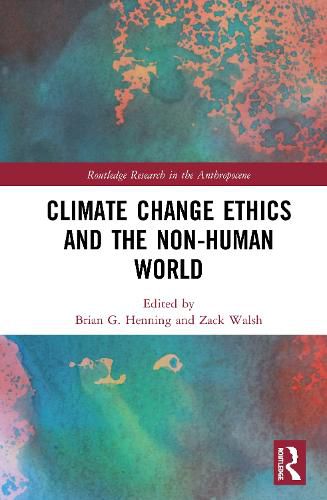Readings Newsletter
Become a Readings Member to make your shopping experience even easier.
Sign in or sign up for free!
You’re not far away from qualifying for FREE standard shipping within Australia
You’ve qualified for FREE standard shipping within Australia
The cart is loading…






This book examines from different perspectives the moral significance of non-human members of the biotic community and their omission from climate ethics literature.
The complexity of life in an age of rapid climate change demands the development of moral frameworks that recognize and respect the dignity and agency of both human and non-human organisms. Despite decades of careful work in non-anthropocentric approaches to environmental ethics, recent anthologies on climate ethics have largely omitted non-anthropocentric approaches. This multidisciplinary volume of international scholars tackles this lacuna by presenting novel work on non-anthropocentric approaches to climate ethics. Written in an accessible style, the text incorporates sentiocentric, biocentric, and ecocentric perspectives on climate change.
With diverse perspectives from both leading and emerging scholars of environmental ethics, geography, religious studies, conservation ecology, and environmental studies, this book will offer a valuable reading for students and scholars of these fields.
$9.00 standard shipping within Australia
FREE standard shipping within Australia for orders over $100.00
Express & International shipping calculated at checkout
This book examines from different perspectives the moral significance of non-human members of the biotic community and their omission from climate ethics literature.
The complexity of life in an age of rapid climate change demands the development of moral frameworks that recognize and respect the dignity and agency of both human and non-human organisms. Despite decades of careful work in non-anthropocentric approaches to environmental ethics, recent anthologies on climate ethics have largely omitted non-anthropocentric approaches. This multidisciplinary volume of international scholars tackles this lacuna by presenting novel work on non-anthropocentric approaches to climate ethics. Written in an accessible style, the text incorporates sentiocentric, biocentric, and ecocentric perspectives on climate change.
With diverse perspectives from both leading and emerging scholars of environmental ethics, geography, religious studies, conservation ecology, and environmental studies, this book will offer a valuable reading for students and scholars of these fields.